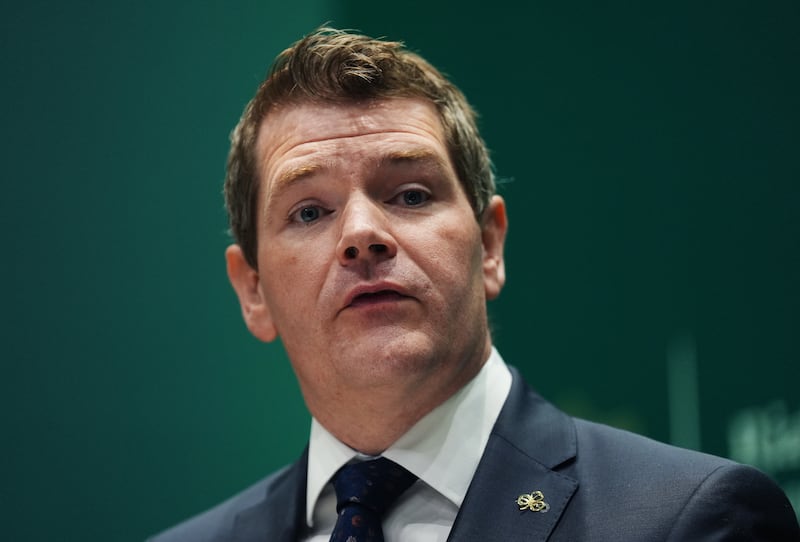There are approximately 95 national bodies with responsibility for regulation, licensing, data collection or standards, the Government’s new competitiveness plan has disclosed.
The plan highlights that the impact of planning and regulatory delays on energy infrastructure delivery in Ireland has been significant (including applications for grid connection).
The plan also points to the slow pace of planning, permitting and licensing systems in the manufacturing sector.
The Action Plan on Competitiveness and Productivity was published on Wednesday by Minister for Enterprise Peter Burke. It was originally scheduled to be produced later in the Coalition’s term but was brought forward to address issues for Ireland’s export economy, raised by the imposition of tariffs by the US.
The plan proposes 85 actions across six key areas. A central component is a “step change” in the funding for innovation and collaboration with higher institutions.
Other big actions are the creation of new structures on artificial intelligence (AI), intellectual property (IP) and start-ups, the reduction of red tape and less delays caused by regulatory bodies and by the courts.
The report finds that delays remain a feature of the Irish legal system. It points to the fact that 300 cases are awaiting delivery of a decision in the superior courts, 50 of which have been waiting for more than 12 months.
The plan recommends the full implementation of the recommendations of a 2020 report on the administration of civil justice, chaired by former president of the High Court, Mr Justice Peter Kelly.
It also said the reforms of judicial review contained in the Planning and Development Bill 2024 should be quickly implemented, as they will reduce delays and legal costs.
The 125-page document highlights the “significant investment gap” between multinational companies and Irish SMEs in research, development and innovation (RD & I).
“The under-investment in RD & I by SMEs in Ireland, and by the Government, raises questions about resilience and sustainability, particularly if global investment patterns shift.”
A key action is to increase expenditure on research activity in the higher education sector to align more closely with small advanced economies.
Another priority is to establish a national AI office which will provide a focal point for the promotion of transparent and safe AI in Ireland.
In the area of regulation, the Department of An Taoiseach will be tasked with spearheading regulatory reform. Among the actions will be a “red tape challenge” across Government, which would result in a significant reduction in regulation for SMEs.
A number of priority actions are identified to address the State’s infrastructural deficits including reducing regulatory, legal, planning and logistical barriers.
The role of the €275 billion committed to capital investment until 2035 in the National Development Plan is emphasised.
[ State funding for innovation to significantly increase in ambitious new planOpens in new window ]
 The Action Plan on Competitiveness and Productivity was published on Wednesday by Minister for Enterprise Peter Burke. Photograph: Brian Lawless/ PA Wire
The Action Plan on Competitiveness and Productivity was published on Wednesday by Minister for Enterprise Peter Burke. Photograph: Brian Lawless/ PA Wire
So too is the commitment to increase capacity in Dublin Airport to 40 million passengers per year, while also reducing the State’s over-reliance on one airport, which currently handles 85 per cent of all traffic.
Ireland compares well to other EU countries in terms of competitiveness but it lags behind the five or six leaders in key areas. Mr Burke told a news conference in Government Buildings that developing infrastructure was key, in addition to research and the scaling up of SMEs. The indigenous economy was at the forefront of the document, he said.
“This plan will maintain Ireland’s prominence as the most competitive economy in the euro zone,” said Mr Burke.
Taoiseach Micheál Martin said that infrastructure was at the heart of competitiveness and sustainability of the Irish economy into the future. He said the NDP was designed to sort out the deficits in water provision, energy, the grid and in public transport.
“If you look at the league table on competitiveness, the area where we are weakest internationally is infrastructure.
“We are pivoting to intensive capital investment for the sustainability of our society, because our population is growing exponentially.”
He said the implications of the substantial increase in population in recent years had not been fully taken into account by commentators, policymakers and by Government departments.

